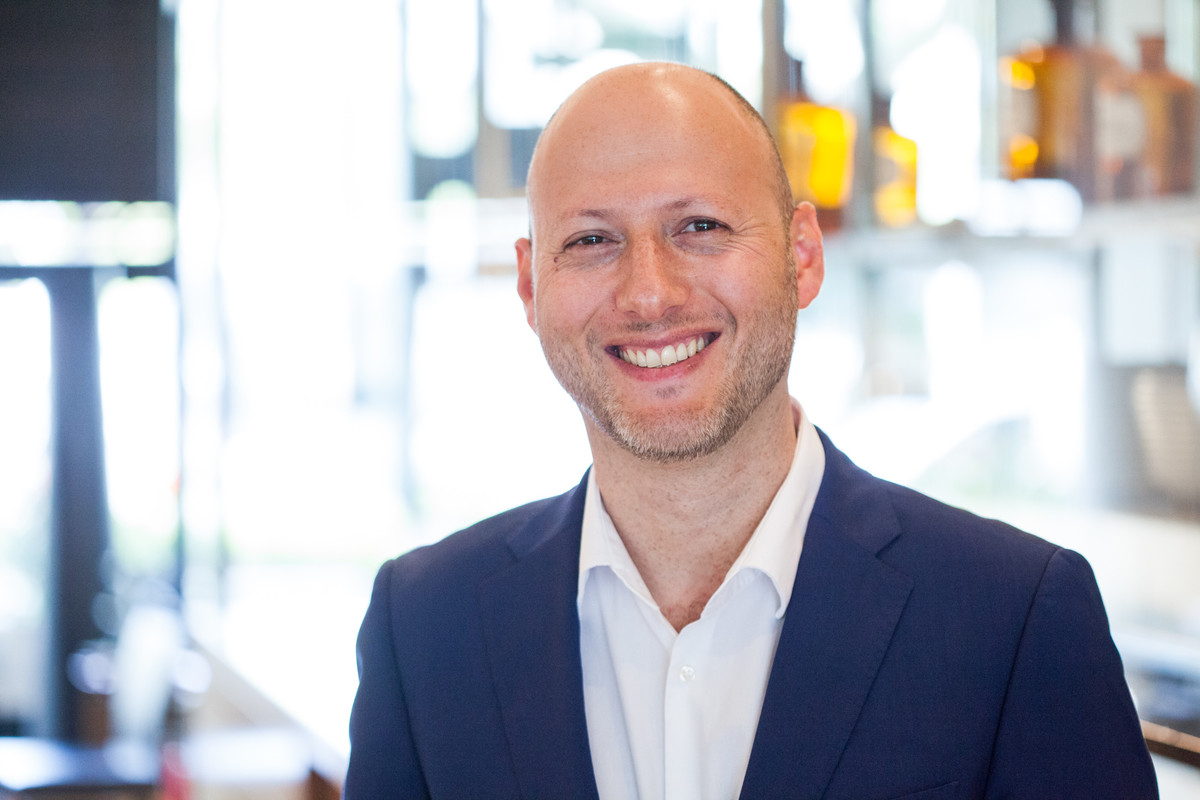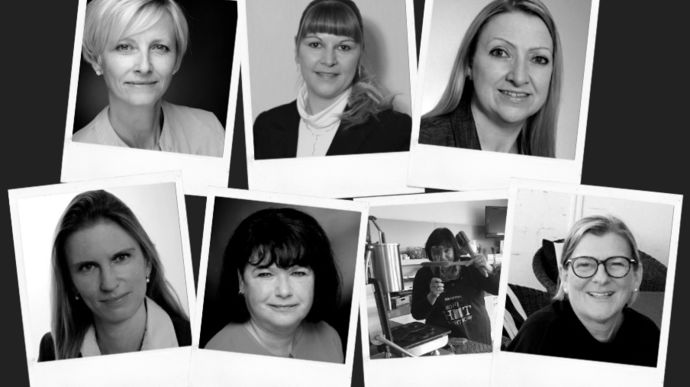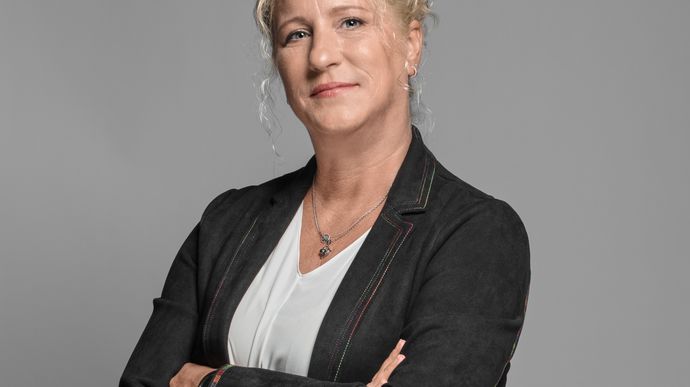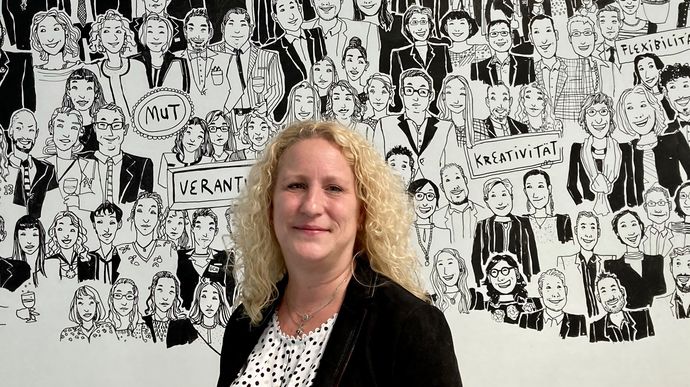COVID-19 Talk: F&B management under challenging circumstances
An interview with Shachar Elkanati

Since March, the hotel industry has had to face new challenges. Especially in the area of F&B, where hygiene has always been an important topic, managers and employees now have to deal with situations they had never encountered before. We spoke to Shachar Elkanati, Corporate Director of Food & Beverage at GCH about his experiences in the past few months and his ideas for the future of F&B.
When did you first sense that things were going to change drastically for you and for the company?
To be honest, it is all kind of blurry. We went from our peaceful every day office routine to staying at home from one day to the next. Initially, we assumed that the situation would normalise itself within two weeks but actually only then did it really start. For me, it was all very surprising and very sudden.
How did working from home affect you?
I had never worked from home before. We have three children, so next to working and being a parent, we suddenly had to become teachers as well. Like every parent, it was a challenge to juggle work and family. It definitely took me some time to get used to it.
How did you manage to stay in touch with your team?
Working from home turned out to be surprisingly efficient. I managed to get everything done. Thanks to video call platforms and other helpful tools, it was easy to stay in touch with the team. This situation made me realise that we actually can manage although we are not physically in the office.
How did you stay in touch with your team, the upper management and other departments?
In my opinion, our management did a great job in keeping the communication flowing. We had a phone call between the Head of Departments and the AVPs every day. It didn’t matter whether you were at home or not, you always received your updates. I think that was when we noticed that working from home is a feasible alternative. We discovered that we still not only get stuff done, but well done.
How did it feel to come back to the office after a few months of home office?
At first it was really strange and lonely, since only the Heads of Departments where there. In an office, what matters most is face-to-face communication. But since my colleagues were not there, we had to rely on online communication a lot. As mentioned before, the daily calls worked great for us. We got our daily status updates from the hotels and learned about the obstacles they encountered in their everyday business. After we tackled the first big issues and solved them, everyone started to relax a bit. We went from daily calls to three calls per week and eventually to one call per week. Thanks to the efficient communication we also managed to increase the hotels’ trust in us. They are now more confident in reaching out to us if they need anything than they were before.
What measures and solutions did you come up with in F&B? How did you implement them in the individual hotels?
Well, it was not easy because everything had new dynamics. We had to figure out new concepts, taking into account the reduced staffing and restrictions by the federal governments. Due to the reduced staff, some people from other departments had to jump into the operational on-site F&B business in the hotels. It was quite a challenge to develop concepts everyone was able to work with, despite not having an F&B background.
Initially, it was only about laying the groundwork to host guests again. We started off with breakfast boxes because that was the safest and most efficient way to operate in the beginning. When the federal governments started to loosen their regulations, we were able to develop different scenarios. This might sound easy but it was not, since we had to take into account not only the individual situation of each hotel but also the different regulations in the federal countries. Therefore, we came up with six different scenarios that covered a certain framework and could then be filled and adapted according to the scope of each hotel. The hotels could then decide which scenario would work best for them and add certain elements and procedures to customise it. Developing these scenarios was not about innovation but about being smart and efficient. We wanted to ensure that both employees and guests understood why certain measures were necessary and why things were done the way they were. It was all trial and error. Some scenarios might have looked good in theory but didn’t work out in real life in the end. Then we had to go back and adapt them. It is an ongoing process.
What was the feedback you got from the hotels and guests regarding the different regulations?
Again, there were a lot of variables. On the one hand, there were the different federal rules and regulations and on the other hand there were the guests’ wishes and expectations. Our task was to find a balance between these and develop them so all eventualities would be covered. It was really interesting to see how our scenarios turned out in each individual situation. It was not always easy, since the guests’ wishes were not exactly in line with the regulations and they expected something else. Therefore, communication was key. We were learning by doing. There was no manual, no previous experience we could refer to.
Do you think that Covid-19 will have long-term effects on the hotel industry, on F&B in general and on GCH as a whole? If so, which ones?
Well, the situation definitely gave us an opportunity to step back and reflect. With many of our F&B outlets not yet reopened, I have the opportunity to review our previous work and see where things worked just fine and where there is still room for improvement. We have the chance to optimise F&B operations in the hotels now. Starting from the restaurant type – a la carte or not – to our purchasing and supply strategy to the optimisation of conference settings and breakfast set-ups.
My aim is to get back to normality, or as close as possible to it. We have to figure out how to best offer normalcy within the restrictions and regulations in each federal country. Naturally, the main goal is to create revenue again and to recover from the effects of COVID-19. On the other hand, there is no revenue without a proper guest experience. Public hotel areas have become strange places. The guests are unsure how to act, where to wear a mask and where not. Our business is to create a bubble of safety and certainty for these guests where they can enjoy their stay and not worry about all these details all the time. The biggest long-term challenge is to make this happen despite obeying and accommodating social distancing, hygiene regulations and limited numbers of seats in restaurants and function rooms.
What is the long-term F&B strategy? Did you already come up with a plan on how to handle similar situations in the future?
We are planning long-term but there is no workaround for certain uncertainties. There are a few parameters we can’t influence, that is why we focus on the areas that we have control over. We review each F&B outlet to see if it worked to its full potential or not. We are also improving existing concepts to make them functional in similar situations in the future. We took our PRIME Restaurant & Bar concept and created a lighter version of it. It is still the same concept but tailored to reduced staff and covers, to ensure it is easily carried out by all parties involved. We are also developing a PRIME café concept, where we plan to offer snacks like sandwiches or toast.
What was the biggest challenge?
I think the biggest challenge was and still is the question, “What if …?”. We are facing a new reality. Our whole operations are being challenged. From March on, everything underwent an impact no one could have predicted. We had to rethink all of our concepts and standards and start from scratch because of COVID-19. We had to reinvent ourselves.
Considering the effort to simply meet the requirements we faced, we decided it was worthwhile for us to re-examine and improve our concepts. After the first shock, all that mattered was supporting the hotels to offer the needed services, the stage of reinventing and developing started. The key is to keep operations going without shooting ourselves in the leg while still considering all aspects – breakfast, half board, conferences and so on. We tried to wrap the scenarios I mentioned before around each of these aspects and really went above and below to tailor it to each individual hotel’s needs. My team travelled around Germany to assess the situation at each hotel and make sure that things were running smoothly. At this point, I would like to sincerely thank them for their remarkable work and dedication. Without them, things would still not run as smoothly as they do now.
What were your learnings and what chances do you see in such an unusual situation?
Do not take anything for granted (laughs). No, seriously. The biggest chance is that we could revise without being afraid of hurting the customer experience in the process, since many of our F&B outlets are still closed. It gives us the opportunity to test, to recognise in which areas is still room for improvement and how to be even more efficient.
For me personally, it is also the chance to create ideal working conditions for the staff. This is what we do with the PRIME Restaurant & Bar concept: It is sophisticated but it creates a framework to operate within. It is a concept of working with the best providers and allowing 30 – 40 % of the menu to be freely interpreted by the chef, using the best seasonal and regional ingredients. The whole setup makes it easier for the staff to operate and, as a consequence, the staff is automatically happier. They don’t end their shift with their tongue hanging to their knees, but with a smile on their face. The customers notice that and are more satisfied. And we know that satisfied customers are the base of a successful business. This is the cycle of service that we want to define as attractively as possible. Now we have the chance to really make it work.
Thank you for the interview and all the best for these future challenges!
Editor: Bea Lehofer










